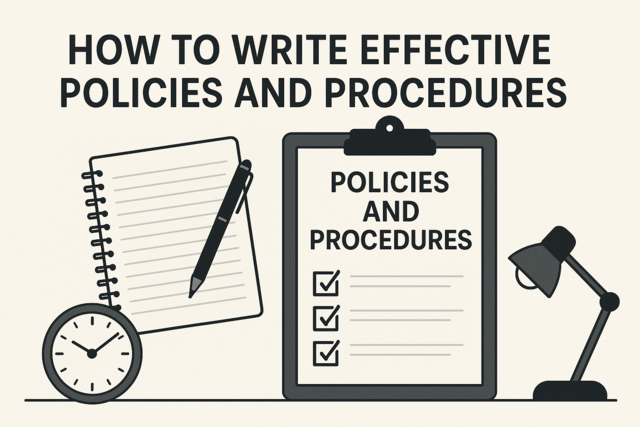The process of employment law begins long before you actually hire someone. Before you step into the position of either a small-business owner/employer or supervisor or manager of a larger corporation, it is vital that you have some understanding of employment law. By learning the fundamentals of employment law, you will, at the very least, limit the possibility of litigation. At the most, you will avoid making costly mistakes and be able to get down to the business of making money.
A successful and savvy employer or manager knows:
- how to properly design job postings and advertisements.
- the proper technique for screening applicants.
- which questions to avoid during the interview process.
- that checking references and past records may diminish employment concerns.
- how to avoid charges of invasion of privacy or defamation of character.
- both federal and state laws that regulate employment practices.
- how to avoid illegal discrimination charges.
- how to protect against unfair competition.
- how important it is to avoid making promises he or she may be unable to keep.
- that immigration laws must be applied in all cases.
- and much, much more.
All Employers Must Obey Employment Laws
What many employers falsely believe is that as long as they have good intentions, they are protected from a potential lawsuit. This may have been the case 100 years ago. However, today's employers are regulated by a myriad federal and state laws when it comes to handling employees.
Employment Equals Economic Relationship
The first fact you need to be aware of is that employment is an economic relationship. An employer seeks competent and dependable help in order to grow a business. An employee is looking for work with compensation. The laws regarding employing people to work for you or your organization are constantly changing. From Congress to state legislatures to federal and state regulatory agencies, today's employer must brave a veritable minefield of potential disasters in the employer/employee relationship.
The High Cost of Making Employment Mistakes
This is an area in which you can take reasonable steps to minimize your risk of making costly mistakes. Hiring the wrong person for the job can cost you in wages, in time lost on a project, and in litigation when you try to terminate this individual and hope to hire a better candidate.
Learning the basics of employment law will help you avoid making mistakes. Sadly, even an honest mistake will get you into trouble. Litigation costs employers billions of dollars a year. By establishing up-to-date employment policies, you will avoid making most of the common mistakes. Not understanding employment law will seriously impact how well and how long you do business.
Employees vs. Independent Contractors
Independent contractors often are hired to work for you without the complication of actually hiring them as employees. The risk, however, is if they "become" employees based on how you deal with them.
One of the biggest things that will distinguish an independent contractor from an employee is determining who is responsible for how that individual is allowed to do his or her job. If the employer dictates the hours, the manner, the method of payment, where the individual does the work, then that person is not an independent contractor, but an employee.
In order to have someone classified as an independent contractor, you as an employer have a say in how much that person will make for a certain amount of work being done. How that work is done, how many hours it takes, the manner in which it is done, and where it is done must be up to the independent contractor.
The Internal Revenue Service (IRS) prefers that people you pay for work be employees. It simplifies the tax burden for both of you. However, there are times when you periodically need specialized skills. An example could be an attorney or an accountant. Some employers need specialized computer or writing skills. These types of jobs are filled by independent contractors.
Employees usually are paid according to the time they spend working, per piece of work, or on a commission basis. They also are bound by supervision or direction on how to accomplish their job. An independent contractor is usually paid a specific amount for a given job as established in an agreement and has more freedom to decide how to accomplish that job.
Where these two show a great distinction is in the tax arena. Here, it is important to note that most states do not actually have a legal definition of an independent contractor. It is up to you, the employer, to understand the legal ramifications of hiring an independent contractor and what tax burden you bear. Each state has its own laws that determine whether an individual is an employee or an independent contractor.
For an employee: You must pay your portion of that worker's Social Security and Medicare taxes. You must also withhold federal and state income taxes and the employee's share of Social Security and Medicare and pay the employee according to the tax laws of your state.
For an independent contractor: You do not have to withhold taxes from the amount you pay that worker. The independent contractor is responsible for paying all of his or her Social Security and Medicare taxes. You do, however, have to supply a Form 1099 to each independent contractor to whom you pay more than $600 per year and send the form to the IRS.
In addition to the tax issue, as an employer, you must be aware of other issues that differ with an employee and an independent contractor. Here you must look into your state and local laws to ensure that you adhere to them strictly.
- Worker's Compensation
- Unemployment Compensation
- Job Benefits
- Workspace
- Firing
- Cost
Full Time vs. Part Time
Companies have the freedom to establish any terms of employment with any employee, whether they will be classified as full time or part time. It is vital that you establish in writing all the terms of employment. Part-time workers must follow the same rules as full-time employees. In general, anyone who works fewer than 25 hours a week is considered to be a part-time employee, but each company must establish such an understanding in writing.
The biggest difference between full-time and part-time employees is that with a part-time employee you do not always have to provide the same benefits that you do for a full-time employee. One benefit you cannot avoid paying, however, is overtime for any worker who works more than 40 hours in any one week. Some states have requirements to pay overtime for anything over eight hours of work in one day, so you will have to check your state laws. Also, consult your state laws about references to what constitutes a full-time employee and what constitutes a part-time employee.
Employment at Will
Employment Contracts
Most employers believe that if they do not have a written contract, then they have an employment-at-will agreement. However, if you have made any kind of spoken or even implied promise about the work, you may find yourself in a difficult position. Perhaps you have made promises, even in your employee manual or handbook, that you will follow certain steps prior to termination of employment. This creates an implied contract with your employees, and turns an at-will employee into one with a contract.
Promising job security is another form of implied contract. This could make you vulnerable to a lawsuit should you terminate an employee, even if you are suffering from the economic downturn and have no choice but to reduce your workforce. Beware of making verbal promises.
Arbitration Agreements
With the increased incidence of litigation, or court cases surrounding employment issues, more and more employers are establishing a mandatory arbitration agreement as a condition of employment. This is an alternative way to handle employment issues rather than going to court. This agreement is between the employer and employee, defining how they will resolve future employment disagreements by binding arbitration.
Arbitration agreements can:
- reduce the cost of going to court;
- limit the employee's ability to appeal the decision;
- be faster than traditional legal processes;
- maintain privacy for both the employer and the employee;
- take up less time than a traditional court case;
- reduce an employer's insurance premiums;
- usually yield more predictable results.
To find the best applicants for your position, you will need to write a clear description of the job that needs to be done. It should include the following information:
- Essential functions of the job, skills the applicant absolutely musthave in order to perform the job well.
- Additional functions that the applicant may have to perform from time to time. A word of caution is in order here: If the additional functions are not necessary to the performance of the job, you may be unfairly disqualifying a person from the position.
- Special skills required, such as the ability to operate heavy equipment or to handle a specific computer operating program.
- Special educational requirements, certifications, or licenses needed. Here is a another word of caution: Do not set education and experience levels higher than they need to be, as you may set yourself up for a discrimination lawsuit.
- Title or position.
Since the Americans with Disabilities Act of 1990, all employers are required to not discriminate against a qualified individual based solely on his or her disability. There are three things to keep in mind when trying to find a proper fit between job criteria and the applicant's ability to do the job.
- A job applicant with a disability should not be disqualified from employment consideration because of an inability to performnonessential or marginal job functions.
- Selection criteria that eliminates or screens out an applicant mustbe job-related and necessary for the business to run.
- Reasonable accommodations for individuals with disabilities must be made to assist individuals with disabilities should they be chosen for your position.
Advertising
When you advertise your job opening, you have to run the gauntlet of legal pitfalls, especially if you outsource or hire an independent company to write the ad for you who is not familiar with the law. You have to avoid discrimination based on gender, age, or some other defined and protected characteristic. Here are some terms that will ensure that you are politically correct, with the reason for each in parentheses:
- salesperson, not salesman (gender);
- part-time worker, not college student (age);
- office manager, not Gal-Friday (gender);
- two-person job, not married couple (sexual orientation);
- energetic, not young (age).
Something you may consider adding to your advertisements is that you are an "Equal Opportunity Employer," which indicates that you are willing to give your applicants every opportunity to apply without fear of their age, race, color, religion, sex, or origin.
Immigration Laws
Applications
Developing a standard job application form is essential to anyone who is in business and will be hiring employees. Again, you must not ask questions that can be construed as discriminatory, but you are allowed to ask questions that relate to the position and ensure that you will comply with the laws in your state.
You may ask for the following information:
- name, address, and phone number;
- whether the person is legally able to work in the U.S.;
- the position for which the person is applying;
- other positions the person may consider;
- the date the person would be available to start work;
- educational background;
- employment history, including name, address, and phone number of former employers, dates of employment, title, responsibility, and reason for leaving.
- special training that may be relevant to the position.
Questions you may not ask:
- medical history questions;
- the number of absences because of illness in a previous job;
- physical defects or disabilities;
- use of prescription drugs;
- drug or alcohol addiction;
- workers' compensation claims questions;
- age or date of birth (You may determine if the person is 18 or older in order to perform specific job functions.);
- whether the person rents or owns a home;
- religious affiliation or religious holidays the person observes;
- race or skin color questions;
- for a pre-employment photograph;
- weight, unless it specifically applies to the job;
- marital status and whether the person has children;
- gender;
- intention to have children;
- physical or mental condition that does not directly relate to the job;
- citizenship, other than whether the person can legally work in the U.S.;
- ancestry or nationality;
- how one came to speak a foreign language;
- arrest records that did not result in a conviction;
- name and address of nearest relative in case of emergency (You may ask name and address of nearest person to notify.);
- financial issues, such as bankruptcy or garnishment.
There could be more questions and issues you may not discuss. Be sure to check your local and state laws for a complete list of what you may and may not ask on a job application or during an interview.
For further information about what you may and may not ask on a job application, go to:
R�sum�s
The Civil Rights Act requires that all r�sum�s and employment applications be retained for six months to a year in order to avoid charges of discrimination or unfair hiring practices. It is usually advisable to keep all of these for a year, or as long as you keep certain r�sum�s. Perhaps you keep an "active status" file. If that is so, then keep all r�sum�s and job applications for the same amount of time.
Interviews
By now you will have a good understanding of the types of questions you may and may not ask an applicant, whether on the job application or during the interview. Keep your questions focused on the applicant's motivation, willingness to accept direction, interest in the job, and ability to communicate and lead. Never ask a question that could later be construed as discriminatory.
For first-time employers, you would be wise to devise a list of questions that youmay ask in order to keep from asking questions that are illegal. Innocent questions often result in litigation because of their discriminatory nature.
Lesson Three will give you more information on how to interview well in order to find the best person for the job.
Never keep notes about an applicant's disabilities, gender, age, etc., during the interview. This could later be subpoenaed for a lawsuit.
Contract, the Agreement in Writing
When you and the job applicant have agreed on the terms of employment, it is wise to get this in writing. Never hire on a handshake, as this does not specify the terms of the agreement. When you get it in writing, any misunderstandings are cleared up.
Another reason to get things in writing is to have the prospective employee notice the arbitration clause you may wish to include as a condition for hiring. You may wish to restrict an employee from leaving your company and taking business with him or her to the next job by requiring a non-competing agreement.
Any changes in the written agreement must be initialed by the employee and you or your company representative.
Make it clear that the contract must be signed in order to be valid. Should you plan to hire someone for at least a year, it is wise to get a contract, as any contract valued at more than $500 should be in writing.
Misrepresentations
When hiring an employee, be sure you do not promise that the person will make a specific amount of money, unless that will be the salary. This is especially true when hiring sales personnel who work mainly on commission. Never make promises of how much the person is likely to make in commissions, as that is considered to be an illegal statement.
Check References
The Job Offer When you make the job offer, be sure to specify just how long the offer will be available. You also can make the job contingent upon getting necessary information to you and signing the formal contract. Without this step, the contract is not formed. If an applicant refuses to sign a hiring contract, it may be wise to not hire that individual.
Sample Rules of Conduct
These can be a further term of employment. Rules of conduct establish just what behavior is and is not acceptable at your place of employment. You will want to contact an employment attorney to ensure the legality of this document.
Testing
Many employers consider testing to be a big component in their decision to hire an individual and may include the following in the application process:
- skills testing;
- aptitude testing;
- honesty testing;
- medical testing;
- drug testing.
Most of these types of testing are more common in larger businesses. Regardless of the size of your business, it is vital that you know the legal limits to the various types of testing. Specifics on pre-employment testing will be handled in a later chapter, giving you insight on what can make some of the above testing illegally discriminating for various applicants.
Rejecting Applicants
Employee Files
Once you hire an employee, you will want to create an employee file. This should contain job-related information, such as the person's application, r�sum�, hiring contract, W-4 form, receipt for the employee handbook, performance evaluations, benefits sign-up forms, complaints and compliments, awards, warnings, and disciplinary action. Never include information that is not job-related, as this could work against you in the future.
Handbooks and Manuals
Employee handbooks or manuals are written policies on how you run your business. They explain paid time off, vacation policies, policies on discrimination and sexual harassment, etc. This is a good start for a paper trail you may need should you have the misfortune to hire a bad employee who is looking to cause trouble for you. The book should include:
- company history;
- hours;
- pay;
- benefits;
- drug and alcohol abuse;
- sexual harassment;
- discrimination;
- attendance;
- discipline;
- safety;
- smoking;
- complaints.
In this way, every employee in your company has the same information. It protects both you and your employee.























